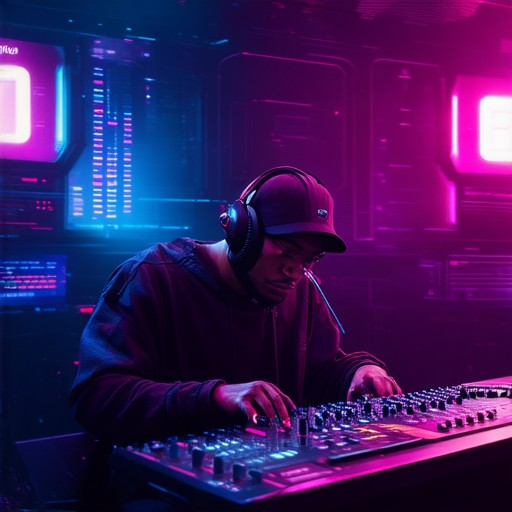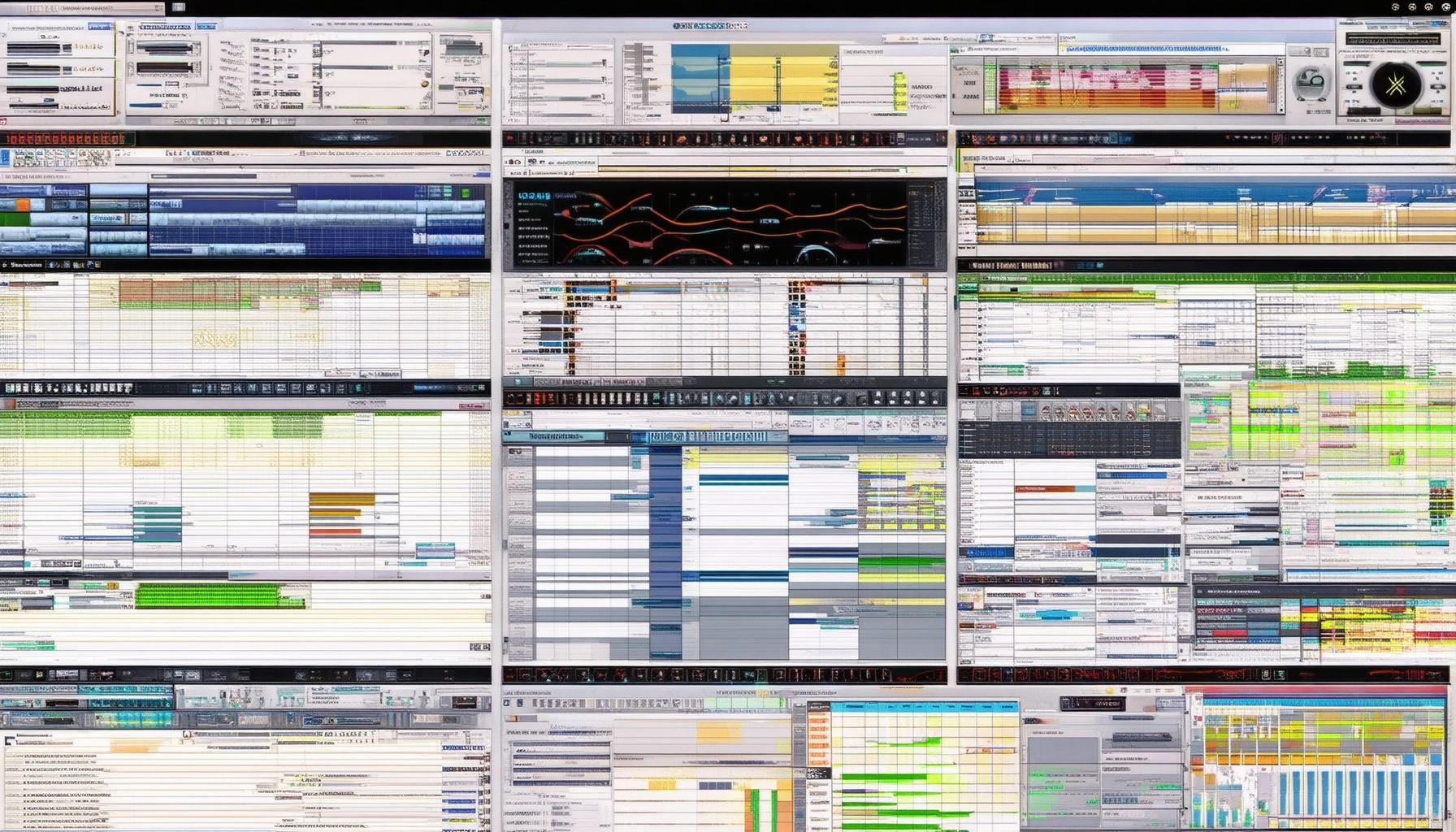Hip hop production is an ever-evolving art form, constantly pushing boundaries and redefining creative possibilities. From the iconic beats of yesteryear to the cutting-edge tools of today, the world of hip hop production is a dynamic landscape where innovation thrives. As we explore the hottest trends shaping the genre, it becomes clear that the fusion of technology, creativity, and cultural resonance continues to drive this transformative movement. Whether it’s the rise of sample-based production, the integration of live performance tech, or the emergence of fresh tools that redefine the mixing process, there’s no shortage of groundbreaking developments. Join us as we uncover the latest advancements, meet the top producers leading the charge, and dive into the future of hip hop production.

What 3 Things Are Used in Hip Hop Production?
Hip hop production combines beats, rhymes, and a unique vibe to create dynamic tracks. Here’s a breakdown of the essential elements:
1. Beats
Beats form the backbone of hip hop production. They are created using drum machines, sequencers, or live instruments like drums and basslines. Producers layer these elements to create rhythm patterns that match the lyrics and style of the track.
2. Rhymes
Rhymes are the verbal components of hip hop, delivered by rappers. MCs (Microphone Controllers) rap about various topics, telling stories, dropping wisdom, or just flexing their skills. The flow and delivery of the rhymes are crucial to the track’s energy.
3. DJ Turntable
The DJ plays a vital role in hip hop, using turntables to spin vinyl records. Scratching, beatmatching, and blending records creates the scratch effects and transitions that define the genre. The DJ also cues up the next track during a set.
These three elements—beats, rhymes, and the DJ—come together to create the raw essence of hip hop. The combination of live instrumentation, sampled sounds, and creative mixing gives the genre its distinctive flavor.
What Do Most Hip-Hop Producers Use?
Hip-hop producers utilize a variety of tools and equipment to create beats, mix tracks, and shape the sonic landscape of their music. Here’s an overview of the primary instruments and technologies commonly employed:
- Synthesizers : Synthesizers are a cornerstone of hip-hop production. They are used to create melodies, basslines, percussive “stabs,” chords, and unique sound textures. Popular models include the Roland Jupiter-8 and the Moog Minimoog.
- Drum Machines : Rhythm is the backbone of hip-hop, and drum machines like the Akai MPC series are essential for creating tight, punchy beats. These machines allow producers to program rhythms with precision.
- Sampler Pads : Sampling is a key technique in hip-hop production. Producers use sampler pads to loop and manipulate audio snippets, adding texture and depth to tracks.
- Live Instruments : While primarily a beat-making tool, the Akai MPC also functions as a live instrument, enabling performers to play drums and melodic parts live during performances.
- Software DAWs : Modern producers rely heavily on digital audio workstations (DAWs) like Ableton Live and Logic Pro X for recording, mixing, and mastering tracks. These programs offer extensive editing capabilities and virtual instruments.
- Mixing Consoles : High-end mixing consoles and outboard gear are used to process and blend tracks. Tools like the SSL 4000 and Neve preamps are highly regarded for their sonic quality.
These tools, combined with creativity and technical skill, enable hip-hop producers to craft dynamic and impactful music that resonates worldwide. Whether using classic analog gear or cutting-edge software, the focus remains on delivering powerful, rhythmic, and emotionally charged tracks.

Who Is Considered the Biggest Producer in Hip-Hop?
The title of the biggest producer in hip-hop is debated among fans and critics, as it often depends on the criteria used, such as influence, commercial success, or innovation. However, several names consistently stand out due to their immense contributions to the genre:
- Dr. Dre – Known for his groundbreaking work with artists like Snoop Dogg, Tupac, and Eminem, Dr. Dre has been a pivotal figure in hip-hop production for over three decades. His beats are synonymous with the West Coast hip-hop sound.
- Kanye West – Often referred to as a visionary, Kanye has redefined music production, blending hip-hop with alternative and pop elements. His work with himself and artists like T-Pain and Lil Yachty has earned him widespread acclaim.
- Pharrell Williams – As part of N*E*R*D and solo, Pharrell has created hit tracks like “Frontin'” and “Blurred Lines,” influencing modern hip-hop production with his unique style.
- Timbaland – Renowned for his versatility, Timbaland’s productions span genres and have featured artists like Aaliyah, Missy Elliott, and OneRepublic, leaving an indelible mark on music.
- J Dilla – Known for his intricate beatmaking, J Dilla’s work with artists like Common and Kanye West has solidified his legacy as one of hip-hop’s most respected producers.
- Rick Rubin – As a producer and label executive, Rick Rubin has shaped the careers of numerous artists, including Beastie Boys, Jay-Z, and Public Enemy, significantly impacting the genre’s evolution.
- Quincy Jones – While primarily known for his work outside hip-hop, Quincy Jones has produced tracks that influenced the genre, notably working with Michael Jackson and collaborating with artists like Nas and Q-Tip.
Each of these producers has left an indelible mark on hip-hop, making the discussion of who is the “biggest” a matter of personal preference rather than a definitive answer. Their contributions span various eras and subgenres, showcasing the diversity and evolution of music production in hip-hop culture.

Who Produces Growing Up Hip Hop?
Growing Up Hip Hop is a popular reality television series that explores the lives of rappers and their families. The show has gained significant attention due to its unique perspective on the hip-hop culture and its impact on various aspects of life.
- The series is executive produced by Datari Turner, known for his work in the entertainment industry and his deep connections within the hip-hop community.
- The show has spun off into two successful spin-offs: Growing Up Hip Hop: Atlanta and Growing Up Hip Hop: New York .
- The production of the original series is handled by Datari Turner Production and Entertainment One Studios, ensuring high-quality content and storytelling.
For more information about the show and its creators, visit our main page on Abstract Hip Hop .
Vitamin D: A Leader in Northwest Hip-Hop Production
Derrick “Vitamin D” Brown, a prominent figure in the Seattle hip-hop scene, has left an indelible mark on the music industry through his innovative production skills. Known for his work with major artists like The Notorious B.I.G., Tupac, and Biggie Smalls, Vitamin D’s contributions extend far beyond these collaborations.
As a member of the influential Northwest Posse collective, Vitamin D helped pioneer a unique hybrid of hip-hop, rock, and grunge music. His ability to seamlessly blend these genres has made his productions stand out in the industry. Whether crafting beats for high-profile artists or supporting local talent, his dedication to music has solidified his status as a respected producer.
Vitamin D’s discography includes notable works such as “The State” and “Grind Mode,” reflecting his deep involvement in the music scene. His versatility and commitment to pushing creative boundaries continue to define his role as a pivotal figure in hip-hop history.

Ayana Fite’s Dad
Ayana Fite’s father is DJ Hurricane, a well-known producer and DJ, particularly recognized for his work with the Beastie Boys.





0 Comments